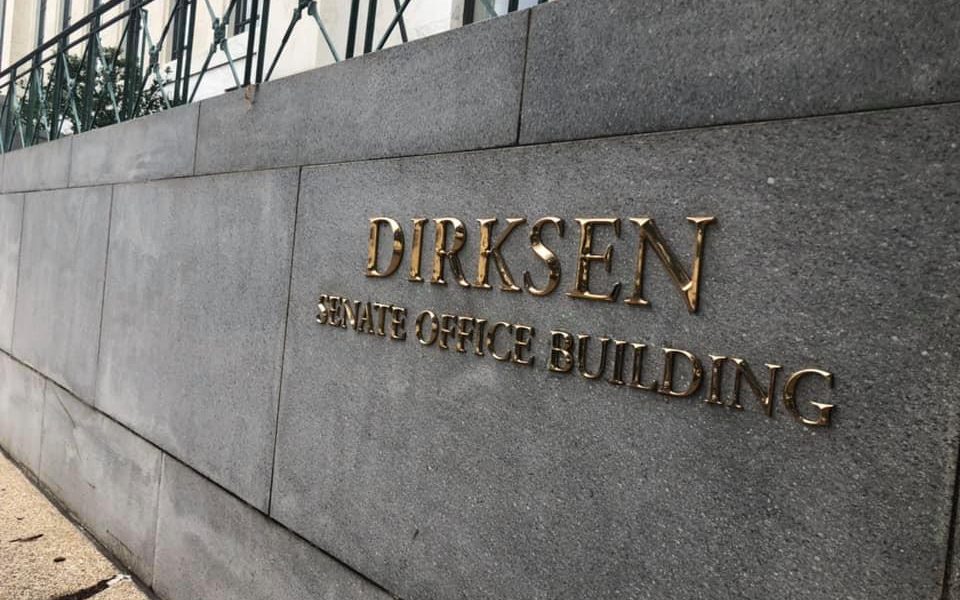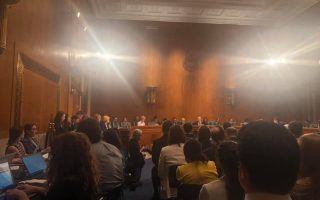
This work is licensed under a Creative Commons Attribution-NonCommercial-NoDerivatives 4.0 International License.
Purpose: This is a work that I completed while interning for the Healthcare Leadership Council in Washington D.C. After attending a multitude of Congressional hearings, I have settled on the belief that limited government regulation of healthcare is necessary. That is not to say that no regulation is the solution. On the contrary. Regulation is necessary, but only to a certain degree, especially in domestic and global healthcare markets. This brief essay explores this idea. This will be used to supplement my understanding of how decisions to regulate are reliant on economic modelling and evaluations. This post highlights my strength in stating a claim and supporting it with contextual evidence.
Drug development and medical procedures are becoming relevant matters within the healthcare industry, and these topics of interest have influenced debate over whether the government should determine the effectiveness and/or cost benefit of every procedure or drug offered to patients. Countless authorities have expressed that since there is not sufficient evidence to support the assumed functionality and cost-effectiveness of drugs and procedures, the government should intercede and determine what options should be accessible to healthcare consumers and patients. I argue for a collaborative solution, an approach that understands that government intrusion can stifle innovation and experimentation for treatments, procedures, and drugs, while still acknowledging that some level of government oversight is necessary to combat developments that could potentially harm patients. The government should not regulate which treatments are offered to patients; however, it can make recommendations as to the clinical testing of such pharmaceuticals.
When policymakers are faced with a dearth of evidence regarding drug developments and treatments, clinical testing is an ideal solution. The Food and Drug Administration (FDA) and other publicly-funded entities such as the National Institute of Health (NIH) serve this exact purpose, for both were designed to ensure the safety and security of patients that utilize pharmaceuticals, medical devices, and biological products. As healthcare companies invest millions upon millions of dollars in research development, the government can also fund research projects intended to protect the public health. Furthermore, policymakers should consult with medical practitioners before such determinations are made. Physicians are the primary agents that fully recognize the complexity of medical care because some approved (and unapproved) therapies may be the key to providing relief for patients undergoing severe medical ailments. Fundamentally, a physician’s perspective is superior to that of the policymaker, for the policymaker has no jurisdiction on how certain treatments may or may not be appropriate for patients.
With right-to-try laws gaining popularity in the United States, for example, more patients are gaining access to experimental therapies (drugs, biologics, devices) that could potentially cure (or simply relieve) their ailments. As these treatments typically proceed past Phase I of testing, they are not approved by the FDA. These pieces of legislation allow for medical decisions to return to the patient and grants the doctor the privilege to evaluate the effectiveness of these drugs on a case-by-case basis, as all patients have different susceptibilities and reactions to a myriad of drugs, biologics, and devices. Although this is a pivotal move that provides more agency to the provider, the government could also impose a requirement in which clinical trials are still implemented to ensure the solvency of the treatment. In many cases, once unapproved drugs become accessible, research testing for their effectiveness stalls and no further experimentations are done to approve the treatments. Accountability measures imposed by the government may be necessary to guarantee that these unapproved biologics, drugs, and devices pose no harm to the public.
This matter emphasizes the increasingly apparent struggle between the role of government in ensuring the public health and the role of the physician in providing services, treatments, and drugs to patients. Healthcare is multifaceted with various actors upholding different responsibilities. Healthcare cannot be completely dependent on government control or only reliant on the decisions of the doctor. Administrative costs, healthcare expenditures, affordability and other factors must be considered to create an effective healthcare system. Essentially, the policymaker and the provider must work together to deliver a system that promotes quality care for the patient and the consumer.


